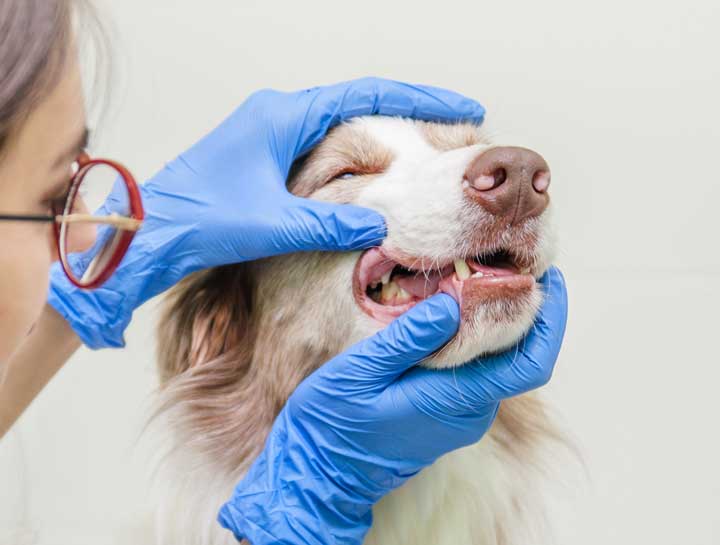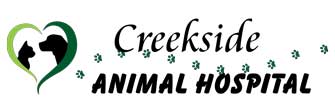Anesthesia Free Dental: Why not?

When we have our pet’s, teeth cleaned it is because we want to do the very best for our pets. We want healthy pets that live long and happy life. You might have heard of anesthesia-free dental cleanings at pet stores, a groomer, word of mouth, or even some veterinary professionals. They offer a service that is perceived as a cheap and “risk” free alternative that improves our pet’s dental health. Veterinarians refer to this as non-anesthesia dental scaling. It consists of scraping the surface of the tooth with an instrument to remove the plaque and tartar while restraining your pet without anesthesia.
Clean But Not Really
Anesthesia-free scaling sounds like a great option but is misleading because the perceived result is that it leaves our pet’s mouth clean and healthy. White teeth do not mean clean teeth. Anesthesia-free scaling does not remove the plaque and bacteria from beneath your pet’s gum line and does not decrease the risk of your pet getting periodontal disease. Consider the buildup on your pet’s teeth, that yucky smelly build-up is also thriving beneath their gumline where you can’t see it or the damage it’s doing. Cleaning and scaling below the gum line is most important because it's where periodontal disease is most active. This can’t be done without anesthesia.
Evaluation and XRays
Anesthesia is needed to best evaluate periodontal disease with the help of a dental probe and x-ray examination to truly sense what is going on below the gumline. There are few visible signs of periodontal infection before it has progressed too far to treat and save teeth.
During a thorough dental exam, radiographs are taken and the mouth and all teeth are evaluated. This allows a veterinarian to identify ongoing issues like periodontal disease or even oral tumors. A comprehensive oral health exam can’t be done on a dog or cat that is awake.
Stress And Restraint
Dogs and cats do not “open and say ah”. As humans, we can do this on command but with anesthesia-free dental scaling your pet must be physically restrained (some more than others) with their mouth held open for some length of time. Some pets will tolerate this. But is hard to imagine your pet being restrained, having their mouth held open while tartar is being scraped off, and not being uncomfortable, stressed out, and confused about what is going on. It is not fair to put your beloved dog or cat through the process without anesthesia.
The Real Risk
No one likes the thought of their loved one going under anesthesia. The risk of anesthesia is what is used as the main argument for anesthesia-free dentistry. The risks associated with anesthesia are extremely minimal. The real risk is periodontal disease.
Periodontal disease is the most common clinical condition in dogs and cats, and the risk of periodontal disease is extremely high. Periodontal disease is caused by bacteria that spreads beneath the gum line. As periodontal disease progresses it can destroy, bone and tissue loss, leading to loose and painful teeth. Anesthesia-free dental cleanings provide no benefit to your pet and do not prevent periodontal disease at any level.
Low Cost, High Price
The cost of an anesthesia-free dental scaling is cheap, to begin with. The ultimate costs are to both your bank account and your pet’s dental health, at far more of an expense. At the point the periodontal disease has developed and gone undetected, treatment will require not only anesthesia but often extensive surgery and teeth extractions. But the real cost of it all is at the expense of your beloved pet.
Just Say No
Periodontal disease can be painful and can affect your pet’s quality of life and vital organ function to the point of impairment. Anesthesia-free dental cleanings provide no benefit to your pet and do not prevent periodontal disease at any level. At-home dental care and proper routine dental cleanings by a veterinarian that follows AVMA dental guidelines are the only things that will help prevent periodontal disease.
If you have any questions, need your pet’s dental health evaluated, or would like to schedule your pet’s dental cleaning contact us!
Pop Quiz: How much do you know about your pet’s dental health? The AVMA has developed a quiz to test your knowledge about your fur baby’s dental health!
Resources: American Veterinary Medical Association, Veterinary Oral Health Council, American Veterinary Dental College
Creekside Animal Hospital is proud to be an active member of our community and to serve as your veterinarian in The Woodlands, Tomball, Spring, Conroe, and surrounding areas.
